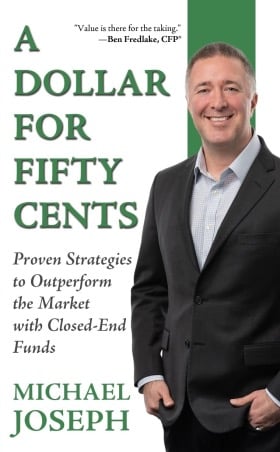Over the past few years, STRs have created quite the buzz. The ability to remotely manage a high-income property attracted many high-income earners to various STR markets across the U.S.
But there’s another reason investors flocked to STRs: the ability to claim large tax losses in the year of acquisition.
History of the Passive Activity Loss Rules
The Tax Reform Act of 1986 introduced Section 469 of the Internal Revenue Code—the Passive Activity Loss Rules. Prior to this, landlords could buy rental properties, create tax losses through depreciation deductions, and claim those tax losses without limitations. This allowed professionals, especially high-income earners, to leverage property depreciation to offset their high incomes.
Congress viewed this as unfair.
The passive activity loss rules created a hurdle that investors need to overcome in order to use rental losses to offset their regular incomes: qualifying as a real estate professional (REP) and materially participating in the rental properties.
The problem? Qualifying as a REP requires that you spend 750 hours in a real property trade or business and more time in real property trades or businesses than any other activity. These two quantitative tests disqualified many high-income earners from qualifying as a REP because they couldn’t spend more time in real estate than their primary job or business.
As a result, the losses from their rental properties are “passive” and can only be used to offset passive income. If they have no passive income to offset, the passive losses are suspended and carried forward.
This can be a disheartening result for those expecting that investing in real estate will shelter their primary income streams from taxes.
Enter Short-Term Rentals
The passive activity rules make it clear that REP status applies to “rental activities.” Interestingly, STRs are not considered “rental activities” under the Section 469 Regulations.
Reg. Section 1.469-1T(e)(3)(ii)(A) provides exceptions to the definition of a “rental activity.” One such exception is when a property has an average period of customer use of less than or equal to seven days. This means if your average period of customer use is seven days or less for your STR, you don’t have a “rental activity” under Sec. 469. And this means you don’t have to qualify as a REP.
The significance is that by not having to qualify as a REP, you don’t have to prove you spent more time in real estate than any other activity. This makes it possible to use the STR tax losses to offset your regular income even if you have a full-time job.
But you still have to materially participate in the STR. This can be done by meeting one of the seven material participation tests. Three of the most common tests are spending 500 hours in the STR activity, spending 100 hours and more than anyone else, or your time is substantially all the time spent by all parties.
If you materially participate in an STR where the average period of customer use is seven days or less, you can use tax losses to offset your regular income.
Accelerating Depreciation: The Key to STR Tax Strategy
Real estate investors know the power of accelerated depreciation. Here’s how it applies to STRs.
Cost segregation study
This tool reclassifies parts of your property from a 39-year lifespan to a faster five- or 15-year life. Result? A significant chunk of your property’s purchase price can be depreciated faster.
For example, a $1 million property could yield a $100,000 to $200,000 allocation of value to five-, seven-, and 15-year properties. You then depreciate value over those faster timelines, thus “accelerating” your depreciation deductions.
Bonus depreciation
Investors can immediately expense any component with a useful life of less than 20 years. This adds power to cost segregation studies, considering they allocate value to five-, seven-, and 15-year properties. Since 2018, the bonus depreciation rate stood at 100%. But from 2023 on, it will phase out by 20% per year over five years. By 2027, this 100% bonus depreciation will vanish unless legislative changes occur.
As a result, when purchasing an STR and deploying a cost segregation study, an investor will enjoy a large depreciation deduction, which will likely create a large tax loss. Assuming the investor materially participates, they could use that tax loss to offset their regular income.
It’s important to mention depreciation recapture, too. When you sell a property, the gain is calculated by comparing the sales price, less the cost of the sale, to the adjusted basis of the property. The adjusted basis decreases with depreciation.
So, if you claim $200,000 of bonus depreciation when you sell the property at a later date, your adjusted basis will be lower by $200,000, thus creating this amount of taxable gain—also known as depreciation recapture.
Depreciation Classification: Residential or Nonresidential?
Residential homes are depreciated over 27.5 years. However, when a property is rented on a transient basis, where it is rented to a series of tenants staying less than 30 days, it is considered nonresidential for depreciation purposes. Though this seems odd, STRs are depreciated over 39 years as nonresidential properties rather than 27.5 years.
But it’s not all bad news. Nonresidential property can use bonus depreciation on qualified improvement property. Additionally, when replacing certain major systems, investors may be able to use Sec. 179 to fully deduct the cost of the replacement (such deduction is not allowed on residential property).
Excess Business Losses May Limit Deductions
It is wise to review Sec. 461(l) when you are planning on taking large losses from your STR activity. Sec. 461(l) defines excess business losses and effectively limits the amount of loss an investor can take in excess of their nonbusiness income.
This rule will hurt investors who enjoy large incomes from their W-2 jobs or certain investing activities. However, if you are running a business as your main source of income, this limitation may not cause an issue.
A Word of Warning
Though we focus on helping our clients maximize tax deductions to accelerate their wealth building, I want to make it very clear that you should never let the tax tail wag the dog.
Owning short-term rentals is not easy. They come with financial risk as well as operational headaches. Financial risks are exacerbated when making emotional and rushed decisions in the name of tax savings. Therefore, underwrite your deals carefully, especially in this current market cycle.
Dreading tax season?
Not sure how to maximize deductions for your real estate business? In The Book on Tax Strategies for the Savvy Real Estate Investor, CPAs Amanda Han and Matthew MacFarland share the practical information you need to not only do your taxes this year—but to also prepare an ongoing strategy that will make your next tax season that much easier.
Note By BiggerPockets: These are opinions written by the author and do not necessarily represent the opinions of BiggerPockets.
















